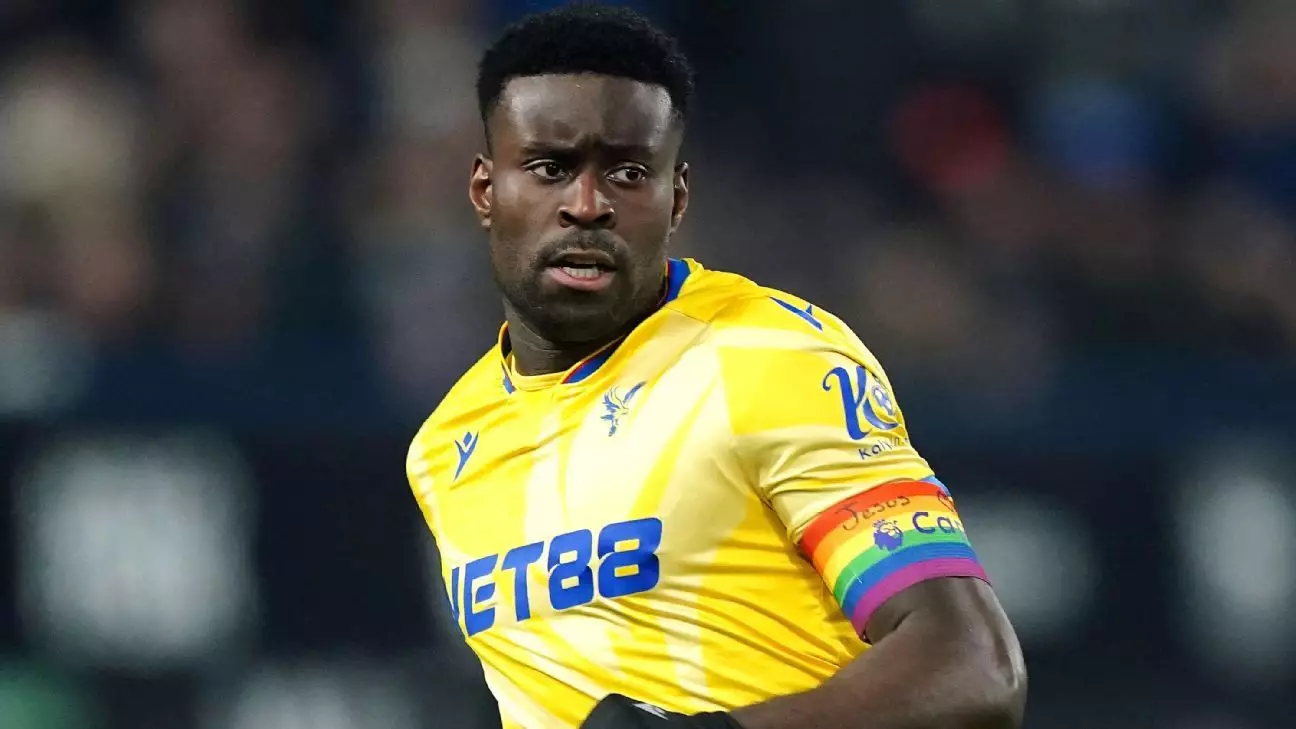In recent weeks, the intersection of sports and personal beliefs has come to the fore in the world of football, particularly within the Premier League. Crystal Palace defender Marc Guéhi found himself at the center of a controversy after he inscribed the message “Jesus loves you” on a rainbow-colored captain’s armband while playing against Ipswich Town, disregarding a clear directive from the Football Association (FA). This incident highlights the ongoing tension between religious expression and inclusivity in sports, as well as the challenges faced by athletes in navigating their personal beliefs within a collective context.
The rainbow armbands, which are part of the Stonewall’s Rainbow Laces campaign, were introduced as a clear signal of support for the LGBTQ+ community. Issued to all 20 Premier League clubs, these armbands symbolize commitment to inclusivity and represent a step towards combating homophobia and discrimination in football. By writing a religious message on an item meant to promote diversity, Guéhi’s actions bring into question the effectiveness of such initiatives and the ability of players to participate fully while remaining true to their personal convictions.
Guéhi’s earlier display of “I love Jesus” on a similar armband during a match against Newcastle United had already prompted a warning from the FA. This suggests a lack of understanding or compliance with the established rules regarding the use of religious messages in sporting contexts. Rule A4 of the FA’s kit and advertising regulations explicitly states that clothing must avoid any religious slogans or messages. The addition of a religious reference could be perceived as undermining the overall message of unity and acceptance that the rainbow campaign represents.
The situation is further complicated by the actions of Ipswich midfielder Sam Morsy, who, adhering to his own religious beliefs as a practicing Muslim, chose not to wear the rainbow armband, instead opting for a standard black version. The FA’s stance on Morsy’s decision indicates a respect for individual choices. However, it also raises questions about the implications of such choices and the impact they have on the league’s collective values—a delicate balance in a sport that thrives on teamwork and unity.
This episode serves as a microcosm of broader societal debates regarding faith, identity, and expression in public spaces. Athletes are increasingly recognized as role models, prompting scrutiny of their beliefs and actions in ways that extend far beyond the pitch. The football community finds itself at a crossroads, balancing the celebration of diversity with the rights of individuals to express their personal beliefs.
As sports organizations continue to navigate these complex issues, it is crucial for them to create environments where inclusivity and diversity are upheld while respecting individual beliefs. Not only must rules be enforced with clarity, but the implementation should also foster open discussions that allow for the coexistence of differing values.
In the ever-evolving landscape of modern football, athletes like Guéhi and Morsy symbolize the need for dialogue surrounding faith and expression in sports. Balancing personal convictions with collective values will be a continuing challenge, but it presents an essential opportunity for growth, understanding, and ultimately, a richer, more inclusive sporting culture.

